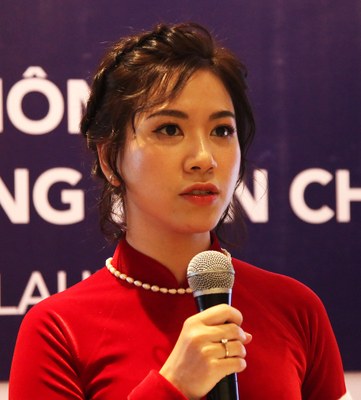Tran Bao Ngan: International Women's Day CWT Spotlight
How did you start working in Counter Wildlife Trafficking (CWT)?
In late 2018, I accepted an offer from TRAFFIC to join the USAID Wildlife Asia Demand Reduction team in Vietnam as a Communications Officer. It was a new, interesting field for me. At that time, I believed CWT in Vietnam was mainly a law enforcement issue. However, I learned that we can combat wildlife crime not only by strengthening legislation but also by using social and behavior change communications (SBCC) strategies to reduce demand.
What has been your proudest moment in CWT?
My work for USAID Wildlife Asia is focused on a social marketing program called the Chi Initiative. It works to reduce demand for rhino horn and other illegal wildlife products. Though TRAFFIC launched the program six years ago and it has reached millions of people, we still meet others who are not aware of illegal wildlife consumption in Vietnam and the region, and who do not know that they themselves can also help with CWT. On April 19-20, 2019 we held a workshop with the Vietnam Chamber of Commerce and Industry (VCCI) to provide its master trainers with information on the changing context of Vietnam’s illegal wildlife consumption. There they learned how to contribute to CWT by using and disseminating Chi SBCC materials. The trainers then spread this information through VCCI’s internal training structure through a process known as "echo trainings". From April to December 2019, VCCI master trainers held 118 echo trainings with more than 7,000 participants, leveraging $200,000 in costs for the project.
As a woman in CWT, how do you think we can bolster women in Counter Wildlife Trafficking? And how can we ensure greater roles for women in CWT?
I have met many Vietnamese women who are champions in CWT, but their work is often under recognized. By promoting their efforts, we can inspire other women to step forward and join the cause.


